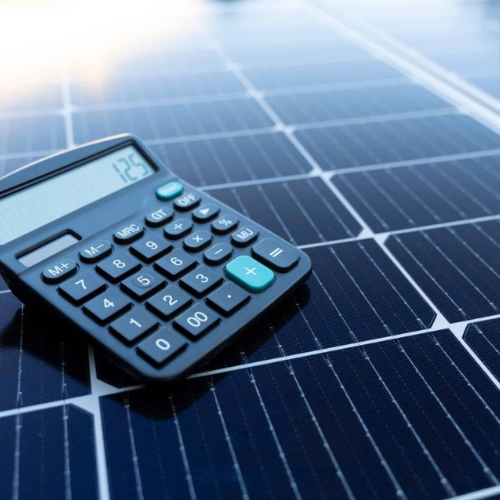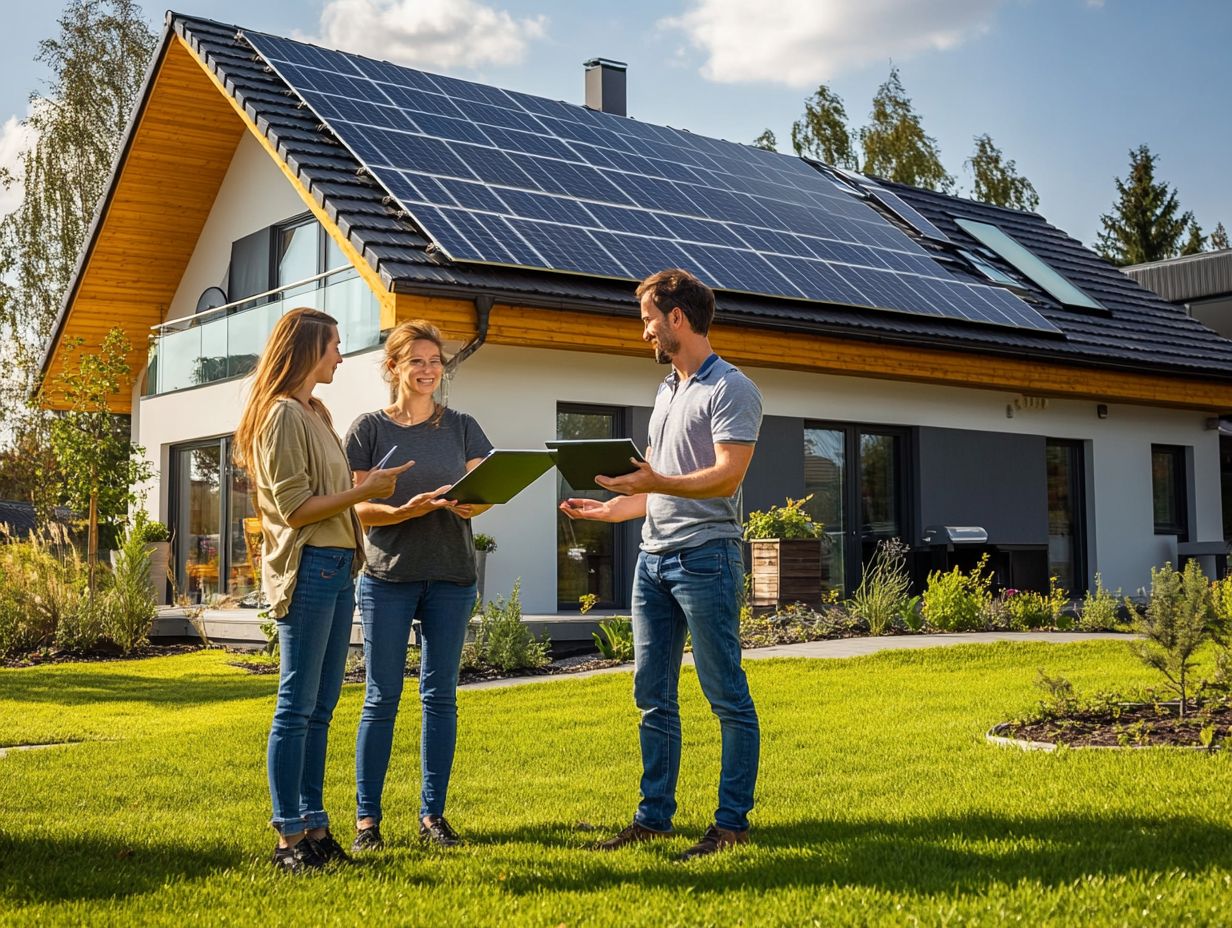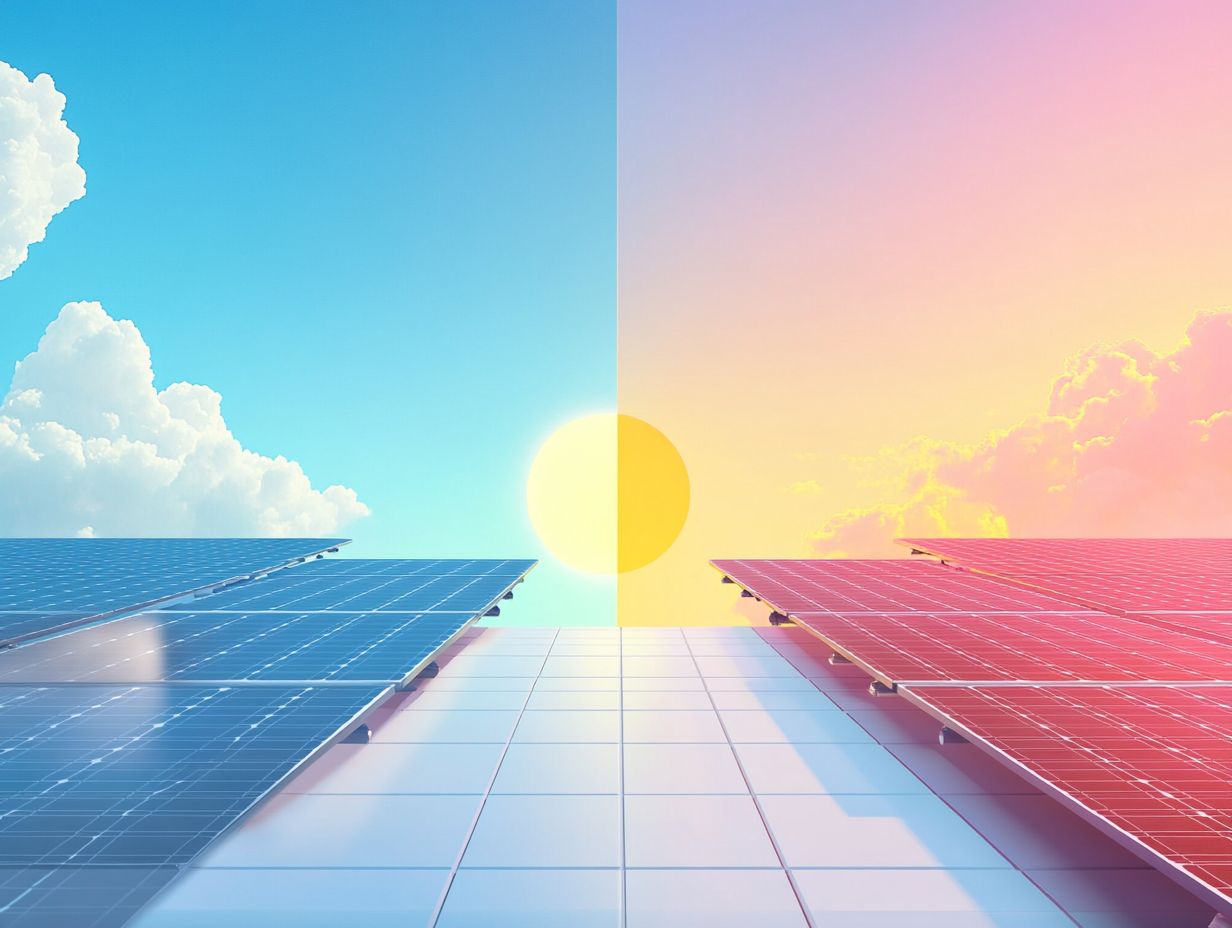Contents
- 1 Choosing the Right 48V Solar Inverter for Your System
- 2 Optimizing Power Output with 48V Solar Inverters
- 3 Integrating Energy Storage with 48V Solar Inverters
- 4 Maximizing Efficiency through Proper Maintenance of 48V Solar Inverters
- 5 Enhancing System Performance with Advanced Monitoring and Control Features
- 6 Overcoming Challenges and Potential Limitations of 48V Solar Inverters
- 7 Future Trends and Innovations in 48V Solar Inverter Technology
- 8 FAQs
When you consider the transition to solar energy, one of the most significant components of your system is the inverter. A 48V solar inverter stands out for its unique advantages, particularly in residential and small commercial applications. One of the primary benefits is its efficiency in converting direct current (DC) from solar panels into alternating current (AC) for household use.
This conversion is crucial because most appliances and devices in your home operate on AC power. By utilizing a 48V system, you can achieve a higher efficiency rate compared to lower voltage systems, which translates into more usable energy from your solar panels. Moreover, 48V solar inverters are known for their ability to handle larger loads without compromising performance.
This is particularly beneficial if you have multiple high-energy-consuming devices running simultaneously. The increased voltage allows for a reduction in current, which minimizes energy loss due to resistance in the wiring. As a result, you can enjoy a more stable power supply, especially during peak usage times.
Additionally, the 48V configuration is often more compatible with energy storage solutions, making it easier for you to integrate batteries into your solar setup for enhanced energy management. Get your free solar assessment at https://www.solarenergy4u.org/free-pro-advice/.
Key Takeaways
- 48V solar inverters offer higher efficiency and lower installation costs compared to traditional inverters, making them a popular choice for residential and commercial solar systems.
- When choosing a 48V solar inverter, consider factors such as power output, efficiency, reliability, and compatibility with your solar panels and battery storage system.
- Optimizing power output with 48V solar inverters involves proper sizing, placement, and monitoring to ensure maximum energy production from your solar panels.
- Integrating energy storage with 48V solar inverters allows for greater energy independence and the ability to store excess energy for use during peak demand or when the sun is not shining.
- Maximizing efficiency through proper maintenance of 48V solar inverters includes regular inspections, cleaning, and firmware updates to ensure optimal performance and longevity of the system.
Choosing the Right 48V Solar Inverter for Your System
Selecting the appropriate 48V solar inverter for your system requires careful consideration of several factors. First and foremost, you need to assess your energy needs. Calculate your average daily energy consumption and peak load requirements to determine the inverter’s capacity that will best suit your lifestyle.
Inverters come in various sizes and power ratings, so understanding your specific needs will help you avoid under or over-sizing your system. Another critical aspect to consider is the inverter’s features and technology. Some models come equipped with advanced functionalities such as grid-tie capabilities, which allow you to sell excess energy back to the grid, or off-grid capabilities for complete independence from utility power.
You should also look for inverters with built-in monitoring systems that provide real-time data on energy production and consumption. This information can be invaluable in optimizing your energy usage and ensuring that your system operates at peak efficiency.
Optimizing Power Output with 48V Solar Inverters

To maximize the power output of your 48V solar inverter, you must focus on several optimization strategies. One effective method is to ensure that your solar panels are installed at the correct angle and orientation to capture the maximum amount of sunlight throughout the day. The positioning of your panels can significantly impact their performance, so consider factors such as shading from trees or buildings and seasonal changes in sunlight.
Additionally, regular maintenance of your solar panels and inverter is essential for optimal performance. Dust, dirt, and debris can accumulate on the surface of your panels, reducing their efficiency. Cleaning them periodically will help maintain their ability to absorb sunlight effectively.
Furthermore, keeping an eye on the inverter’s performance metrics can alert you to any potential issues before they escalate into more significant problems. By proactively managing these aspects, you can ensure that your 48V solar inverter consistently delivers optimal power output.
Integrating Energy Storage with 48V Solar Inverters
| Metrics | Value |
|---|---|
| Efficiency of 48V Solar Inverters | 95% |
| Energy Storage Capacity | 10 kWh |
| Integration Cost | 2000 |
| Round-trip Efficiency of Energy Storage | 90% |
| Additional Weight of Integrated System | 50 kg |
Integrating energy storage solutions with your 48V solar inverter can significantly enhance your energy independence and efficiency. By adding batteries to your system, you can store excess energy generated during sunny days for use during periods of low sunlight or high demand. This capability not only maximizes your energy utilization but also provides a backup power source during outages, ensuring that you remain powered even when the grid goes down.
When selecting batteries for integration with your 48V solar inverter, consider factors such as capacity, discharge rates, and compatibility with your inverter model. Lithium-ion batteries are a popular choice due to their high energy density and longer lifespan compared to traditional lead-acid batteries. However, they may come at a higher initial cost.
Regardless of the type of battery you choose, ensure that it is designed for use with a 48V system to guarantee optimal performance and safety.
Maximizing Efficiency through Proper Maintenance of 48V Solar Inverters
Proper maintenance is crucial for maximizing the efficiency and longevity of your 48V solar inverter. Regular inspections should be part of your routine to identify any signs of wear or malfunction early on. Check connections and wiring for any signs of corrosion or damage, as these issues can lead to decreased performance or even system failure.
Additionally, ensure that the inverter’s cooling system is functioning correctly; overheating can significantly reduce its efficiency and lifespan. Another essential aspect of maintenance is software updates. Many modern inverters come with firmware that can be updated to improve performance or add new features.
Staying current with these updates ensures that your inverter operates at its best and takes advantage of any technological advancements that may enhance its functionality. By committing to regular maintenance practices, you can ensure that your 48V solar inverter continues to perform efficiently for years to come.
Enhancing System Performance with Advanced Monitoring and Control Features

Advanced monitoring and control features are becoming increasingly common in modern 48V solar inverters, providing you with valuable insights into your system’s performance. These features allow you to track energy production in real-time, monitor battery status, and even receive alerts about potential issues before they become significant problems. By having access to this data, you can make informed decisions about your energy usage and optimize your system’s performance accordingly.
Many inverters now offer smartphone apps or web-based platforms that enable remote monitoring. This convenience allows you to check on your system from anywhere at any time, giving you peace of mind regarding your energy production and consumption. Some advanced systems even allow for automated control features, such as adjusting battery charging based on real-time electricity rates or weather forecasts.
By leveraging these technologies, you can enhance the overall performance of your 48V solar inverter and maximize the benefits of your solar energy system.
Overcoming Challenges and Potential Limitations of 48V Solar Inverters
While 48V solar inverters offer numerous advantages, they are not without their challenges and limitations. One potential issue is compatibility with existing electrical systems or appliances that may not be designed for a 48V setup. Before making a switch or installation, it’s essential to evaluate whether your current infrastructure can support this voltage level without requiring significant modifications.
Another challenge lies in the initial investment cost associated with purchasing a quality 48V solar inverter and associated components like batteries and installation services. While these costs can be offset over time through savings on electricity bills and potential incentives, they may still pose a barrier for some homeowners or businesses considering a solar investment. Understanding these challenges will help you make informed decisions about whether a 48V solar inverter is the right choice for your specific situation.
Future Trends and Innovations in 48V Solar Inverter Technology
As technology continues to evolve, so too does the landscape of solar inverters, including those operating at 48V. One exciting trend is the development of smart inverters that incorporate artificial intelligence (AI) and machine learning capabilities. These advanced systems can analyze data patterns over time to optimize energy production automatically and predict maintenance needs before they arise.
Additionally, innovations in battery technology are likely to enhance the integration capabilities of 48V solar inverters further. As battery costs continue to decline and new chemistries emerge, such as solid-state batteries, you may find even more efficient options for energy storage that work seamlessly with your inverter system. The future holds great promise for advancements that will not only improve efficiency but also make solar energy more accessible and affordable for everyone.
In conclusion, understanding the benefits of 48V solar inverters is essential for anyone considering a solar energy system. By choosing the right inverter, optimizing power output, integrating energy storage solutions, maintaining efficiency through proper care, leveraging advanced monitoring features, addressing challenges head-on, and staying informed about future trends, you can maximize the potential of your solar investment while contributing positively to a sustainable future.
If you are considering investing in a 48v solar inverter, you may also be interested in learning about the benefits of using solar energy to reduce carbon emissions. Check out this article to discover how solar power can help combat climate change by decreasing reliance on fossil fuels. By utilizing solar panels in conjunction with a 48v solar inverter, you can make a positive impact on the environment while also saving money on your energy bills.
FAQs
What is a 48v solar inverter?
A 48v solar inverter is a device that converts the direct current (DC) electricity produced by solar panels into alternating current (AC) electricity that can be used to power household appliances and other electrical devices.
How does a 48v solar inverter work?
A 48v solar inverter works by taking the DC electricity generated by solar panels and converting it into AC electricity that can be used to power household appliances. This conversion process allows the electricity to be used in the home or fed back into the grid.
What are the benefits of a 48v solar inverter?
Some benefits of a 48v solar inverter include the ability to harness renewable energy from the sun, reduce electricity bills, and lower carbon emissions. Additionally, 48v solar inverters can provide backup power during grid outages.
What are the different types of 48v solar inverters?
There are several types of 48v solar inverters, including string inverters, microinverters, and power optimizers. Each type has its own advantages and is suitable for different solar panel configurations and installation scenarios.
How do I choose the right 48v solar inverter for my solar panel system?
When choosing a 48v solar inverter, it’s important to consider factors such as the size and configuration of your solar panel system, your energy usage patterns, and any specific requirements or constraints of your installation location. Consulting with a solar energy professional can help you determine the best inverter for your needs.








